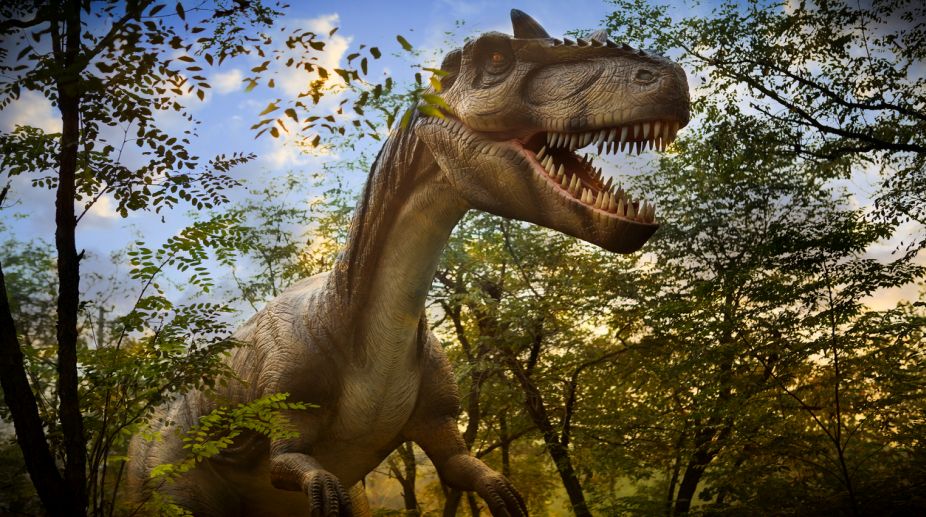Scientists have discovered a new species of a herbivorous dinosaur that lived about 125 million years ago.
The new species belongs to a group of herbivores known as sauropods, which includes giants such as Brontosaurus and Brachiosaurus, who had long necks and pillar-like legs, said researchers from Brigham Young University (BYU) in the US.
Advertisement
The bones of the dinosaur called Moabosaurus Utahensis were assembled using bones extracted over the course of four decades.
Moabosaurus is most closely related to species found in Spain and Tanzania, which tells researchers that during its time, there were still intermittent physical connections between Europe, Africa and North America.
Moabosaurus lived in Utah at a time when the region was filled with large trees, plentiful streams, lakes and dinosaurs, researchers said.
A previous study indicates that a large number of Moabosaurus and other dinosaurs died in a severe drought.
Survivors trampled their fallen companions' bodies, crushing their bones.
After the drought ended, streams eroded the land, and transported the bones a short distance, where they were again trampled, researchers said.
Meanwhile, insects in the soils fed on the bones, leaving behind tell-tale burrow marks.
“We are lucky to get anything out of this site. Most bones we find are fragmentary, so only a small percentage of them are usable,” said Brooks Britt from BYU.
“And that is why it took so long to get this animal put together: we had to collect huge numbers of bones in order to get enough that were complete,” he said.
















